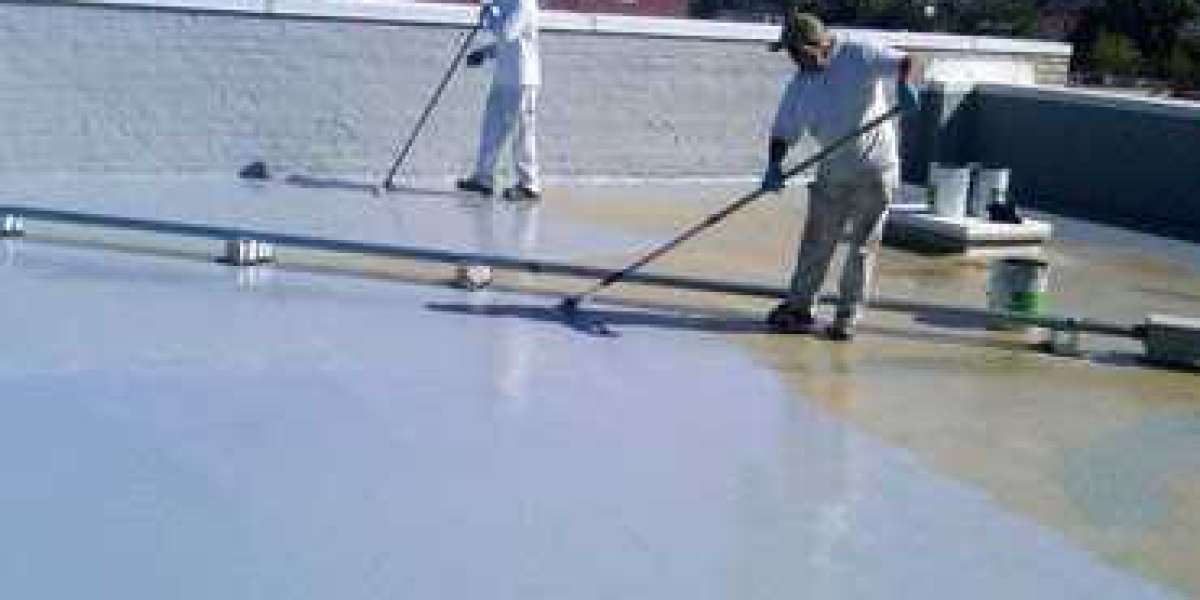Industrial buildings face some of the harshest environmental conditions. From scorching sun and heavy rainfall to fluctuating temperatures and structural stress, the roof of an industrial facility bears the brunt of it all. A compromised roof can quickly lead to leaks, water damage, mold growth, and even long-term structural deterioration. This is where professional industrial roof waterproofing services become indispensable.
In today’s competitive business environment, uninterrupted operations and cost efficiency are crucial. A professionally waterproofed industrial roof not only protects your facility but also ensures that your investment remains secure for decades. Let’s explore why professional waterproofing is so important, what benefits it offers, and how it safeguards industrial properties in the long run.
Why Industrial Roof Waterproofing Matters
Unlike residential structures, industrial roofs are vast, flat, and often accommodate HVAC systems, ducts, solar panels, and other heavy equipment. This makes them more vulnerable to water pooling and seepage. When water penetrates the roofing material, it can cause:
- Structural Weakness: Continuous exposure to moisture weakens the roof’s framework, increasing repair and replacement costs.
- Mold and Mildew Growth: Water seepage creates a breeding ground for fungi, which can impact air quality and worker health.
- Damage to Equipment: Leaks can damage costly machinery, inventory, or raw materials stored inside.
- Operational Downtime: Water-related issues often lead to costly shutdowns for repairs.
A professional waterproofing system prevents these problems, offering long-term stability and peace of mind.
Benefits of Professional Industrial Roof Waterproofing Services
1. Expertise and Experience
Professional contractors bring specialized knowledge about different industrial roofing materials—be it metal, concrete, or membrane-based roofs. Their expertise ensures the right waterproofing solution is applied based on the roof’s design, climate, and usage.
2. High-Quality Materials
Waterproofing involves more than just applying a sealant. Professionals use high-grade membranes, coatings, and insulation materials that are tested to withstand extreme conditions. DIY methods or low-cost fixes rarely provide the same durability.
3. Preventive Protection
By hiring experts, industrial owners invest in preventive care rather than reactive repairs. Waterproofing protects against leaks before they happen, minimizing costly emergencies.
4. Energy Efficiency
Waterproof coatings often come with reflective properties that reduce heat absorption. This improves energy efficiency, lowers cooling costs, and creates a more comfortable indoor environment for workers.
5. Extended Roof Lifespan
Professional waterproofing can add years—sometimes decades—to the life of an industrial roof. This saves money by reducing the frequency of replacements.
6. Cost Savings Over Time
Though professional services require upfront investment, they prove cost-effective in the long run by reducing maintenance, energy costs, and damage-related expenses.
7. Compliance with Safety Standards
Many industrial facilities must adhere to strict safety and building codes. Professional waterproofing ensures compliance, reducing liability risks and safeguarding employees.
Professional vs. DIY Waterproofing
Some business owners may consider handling waterproofing internally to cut costs. However, industrial roofs are complex, and DIY efforts often fail to address hidden vulnerabilities. Without proper tools, training, and materials, temporary fixes may not withstand heavy rains or extreme temperatures.
Professional services, on the other hand, provide a comprehensive assessment, proper installation, and warranties that guarantee performance. In the long run, the difference between DIY patchwork and expert waterproofing can be the difference between a stable roof and an expensive overhaul.
Key Techniques Used in Industrial Roof Waterproofing
Professionals employ a variety of advanced methods tailored to specific roof types:
- Liquid Waterproofing Membranes – Applied as liquid coatings that form a seamless, protective barrier.
- Bituminous Waterproofing – Ideal for flat roofs, offering excellent durability and resistance to leaks.
- Polyurethane Coatings – Flexible and highly resistant to weathering, suitable for heavy-duty industrial use.
- Cementitious Waterproofing – Commonly used on concrete roofs due to its easy application and strong bond.
Each technique requires skillful application to ensure proper adhesion and coverage, making professional involvement critical.
Long-Term Maintenance and Inspections
Waterproofing isn’t a one-time task—it requires periodic inspections to remain effective. Professionals not only install but also provide maintenance schedules, checking for cracks, blistering, or membrane wear. Regular upkeep ensures the waterproofing system remains reliable throughout its expected lifespan.
The Business Case for Professional Waterproofing
For industrial facility owners, waterproofing is not just about preventing leaks—it’s about protecting assets, maintaining smooth operations, and ensuring employee safety. Investing in professional waterproofing services results in:
- Reduced downtime from repairs
- Lower insurance claims related to water damage
- Enhanced property value
- Greater long-term savings
In essence, it’s a strategic decision that supports both operational and financial goals.
Industrial roofs are integral to business success, acting as the first line of defense against weather and environmental damage. While some owners may consider cutting corners, the reality is that only professional industrial roof waterproofing services can deliver long-lasting protection, compliance, and cost savings.
By choosing expert waterproofing solutions, industrial facilities can extend their roof lifespan, ensure uninterrupted operations, and protect their valuable assets for years to come. It’s not just maintenance—it’s an investment in the future of the business.


